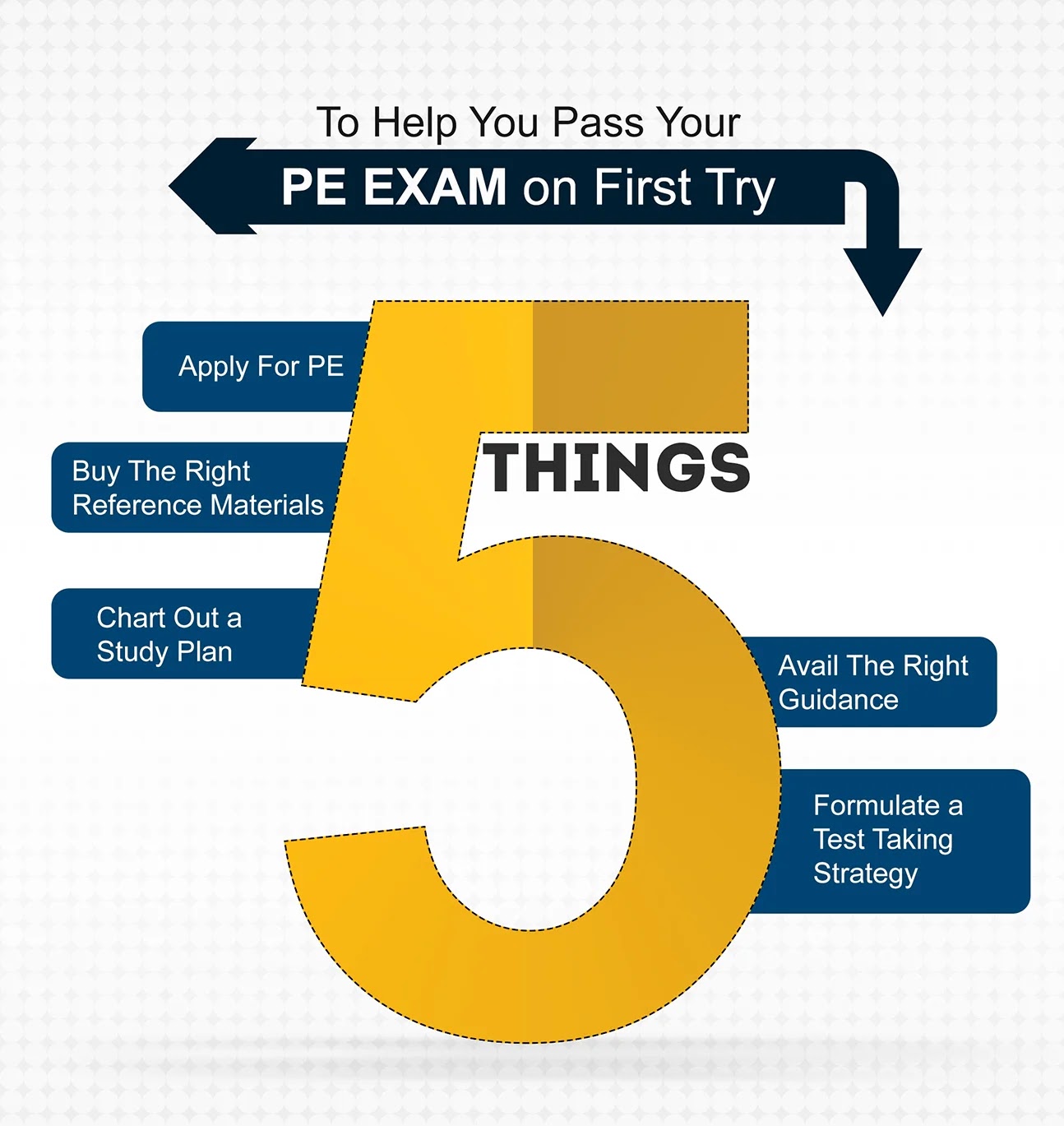Weeks of preparation and several review classes later, you've finally reached the last week in the run up to the PE exam. So what should you do? Is it wise to loosen up and relax or should you hit the books extremely hard? Many PE aspirants fail to realize that the week before the PE exam is extremely vital. Months of preparation boils down to how you play your cards during the last week and determines the probability of your success.
Never take the last week for granted. If you're unsure about how to spend your week before the PE exam, here's what we recommend:
To study or not to
You've spent countless hours poring over voluminous books for weeks. Should you take a break now? Although the week before the PE Exam is deemed the most stressful, putting a full stop to your PE exam prep can do more harm than good.
Assess yourself
You've finally reached that stage where you think you know it all, but do you really? Take a full practice session a week before your PE exam. This will allow you to analyse the facets of the PE Prep Course that you're lacking in and work on it the rest of the week.
Revise and revise again
It is definitely hard to remember everything you study. Therefore how do you ensure that your PE exam prep is not washed out? There are ways to entrap the information you've studied in your long-term memory by using the right techniques. The best way to achieve it is through constant revision. Use the week before your PE exam judiciously. There are subjects that every PE aspirant is tested on. Dedicate a day for each subject and brush up on all the important concepts to commit it to your memory.
Pamper your mind
Take a day off at work right before the exam to relax yourself and do things that you're fond of. This will help relieve stress and allow you to mentally prepare yourself for the huge challenge ahead. There are always moments when we feel like we've reached the breaking point. Do not let that happen to you right before your Exam. The 8-hour long exam demands a lot of concentration and a healthy state of mind before you could proceed.
Prepare for the odds
The day before, pack all the necessities you'll need for the next day. This includes your reference manuals, calculator, extra batteries, id card, water bottle and any other thing that's necessary. A last minute rush in the mornings will make you forget crucial stuff. Arrange for transportation well in advance. Get a good night's sleep to ensure you don't doze off in the middle of the exam. Eat healthy, stay hydrated and pack your lunch to ensure that nothing messes with your digestive system during the D-day. It is vital to anticipate undesirable circumstances and prepare well in advance.
